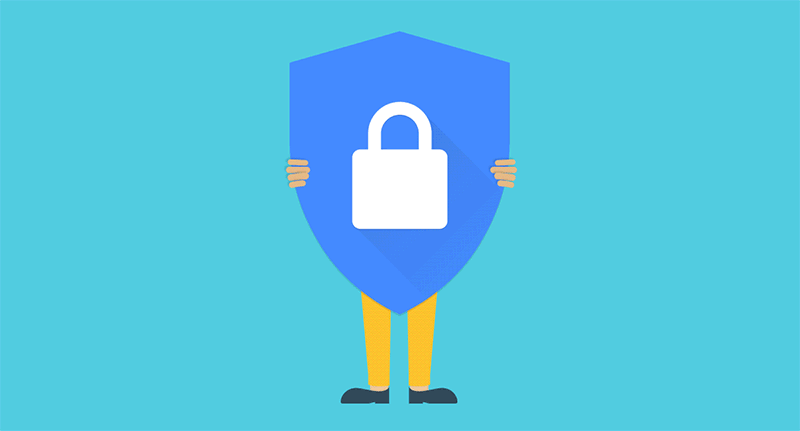Our personal information is something that many of us often take lightly. We casually agree to store our login credentials on public networks and ignore any protocols that could keep our data secure over the web.
While this may seem like the easy thing to do, nothing could be more threatening over the web. Your personal information is something that should be protected without fail. Only by keeping your data private can you safeguard yourself from data thefts, phishing scams, and falling victim to repetitive marketing schemes.
But who has the time and energy to set up elaborate protocols to protect their identity? We are here to tell you that you do not need to spend hours establishing a secure perimeter. Instead, 10 minutes of your time may be enough to keep you anonymous and secure over the web. Let us show you how:
Two-Factor Authentication
Many of us spend a crazy amount of time playing on our smartphones or browsing social media on them. Why not use your trusty phone to secure your data as well? Two-factor authentication is an added layer of defense account breaching.
You need to link all your important accounts with your cell number. Then, every time you or anyone attempts to log in to those accounts, you will receive a unique code on your cellphone. And only by entering that exact code will the person be able to access the account.
Your Password Matters
While this might seem like an obvious recommendation, it cannot be emphasized enough. It does not matter whether the account you have is essential or not; if it contains any trace of your data, it must be secured with the most robust password possible.
Moreover, your passwords must not be derived from birth dates, social security numbers, or phone numbers. Using those is a lazy formality that serves little to no purpose. Ideally, your password should incorporate alphabets (upper case and lower case), numbers, and special characters.
Be Cautious When Connecting to Public Wi-Fi
Primarily, one must avoid connecting to public Wi-Fi networks at all costs. Potential intruders on public Wi-Fi networks may easily access your data, thus leaving you open to a significant threat. And in cases when connecting to a public Wi-Fi network is crucial, such as the public Wi-Fi in Norway’s parks, the best way to keep your privacy safe is by using the best VPN for Norway. CyberGhost was always a solid VPN choice. Discover what it can offer in this detailed CyberGhost review.
A VPN service can mask the actual IP address of your device, thus keeping you anonymous while you browse. For instance, a reliable VPN Extension Firefox is an excellent option when browsing the web on public Wi-Fi networks.
Revoke Unnecessary Permissions
Smartphone apps are addictive, so much so, that we have started downloading apps for various purposes. But these apps require permission to access certain areas of our smartphones, which many of us take lightly.
While the fact of the matter is that you do not always need to grant every permission that the app asks for. So, you need to go through all the apps on your smartphone and revoke any permission granted to the app unnecessarily.
Keep Your Location Private
Think of this for a moment – a person starts following you every single second of the day for the rest of your life. Sounds creepy and intrusive, doesn’t it? This is exactly what you are enabling when you grant unrestrictive access to your location to the apps on your phone.
Apps and the companies that develop them can easily use that data to track every move you make and ultimately craft personalized marketing campaigns that you might fall victim to. So, revoke location access permission from all apps that do not need it.
Never Save Your Credentials
We often save our login credentials on devices that we use regularly. Our aim is usually to be free from remembering the passwords of every account, or we typing passwords for every account every single time. While it may be understandable to some extent if it is a personal device only you use, doing so on office and college computers can be catastrophic. Devices accessible to even one other person may cause you to be victimized by data theft, phishing scams, frauds, and much more.
Summing It All Up
These are the go-to activities for securing your data instantaneously. And while they are effective, you would still need the support of a reliable VPN service to reinforce all of them.
